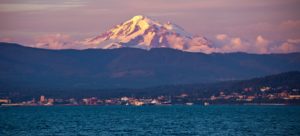The compounding crises of 2020 cost many families their loved ones, and set so many more people back. Yet it also set Washington state up for a truly comprehensive recovery — one that deals with the already-felt impacts of climate change, addresses the inequitable harms of pollution on BIPOC communities, recovers struggling salmon and orcas, and much more.
We’re grateful there’s a growing understanding among elected officials that these issues are interconnected. Unlike the economic downturn of 2008, lawmakers have committed to help our state recover from the crises of 2020, prioritizing funding and legislation to more communities forward on *all* of them.
See where key bills stand: Updated April 15th
On top of working to pass a balanced two-year budget in the middle of a pandemic, lawmakers will hold our state’s first-ever virtual legislative session, where they could help make this comprehensive recovery a reality. That means no need to take time off work driving to and from Olympia to meet with your legislators and have your voice heard during a committee hearing. All of that will be done over video call, providing greater access to the lawmaking process for all Washingtonians. RE Sources’ top legislative priorities for Northwest Washington include…
Protecting the Salish Sea and Freshwater Restoration
(Links to proposed bills in parentheses)
- Recover salmon and orca by restoring habitat through net ecological gain (HB 1117). Nature filters out pollution, stores greenhouse gases, and uses intact shorelines to limit the damage of floods and storms — all for free! Net ecological gain is a concept that requires development to rebuild natural functions it impacts through restoration of wetlands and shorelines. The Legislature funded an effort to define and determine how to achieve net ecological gain in 2020; however, the funding was returned due to pandemic response and uncertainty around revenue forecasts.
- Nooksack River adjudication funding (SB 5092 / HB 1094). Water rights in the Nooksack River watershed have been in disarray for decades. Knowing exactly who has rights to how much water is a vital baseline for making choices about this shared resource. Funding is needed to start the initial work before an adjudication can commence. Learn more about this issue.
- Restoring waterways and protecting drinking water from PFAS contamination (SJM 8001). Per- and polyfluoroalkyl substances, also known as PFAS, persist in the environment for long periods of time. These chemicals are linked to health problems in people and animals. Firefighting foam with PFAS has been found in drinking water wells near naval air stations. This Joint Memorial (SJM) calls on the federal government to coordinate with the state and assist in monitoring and mitigating PFAS pollution in waterways. This measure did not pass this session.
- Preventing cuts to the environment. We don’t want a repeat of the 2009 through 2012 legislative sessions where significant budget cuts were made to programs that protect the air we breathe and water we drink from pollution and slow down the pace of salmon habitat restoration.
Climate Action and Thriving Communities
Clean Energy:
- Healthy Homes, Clean Buildings (HB 1084 / SB 5093, Governor request). A systematic plan to phase out the use of fossil fuels for indoor heating by setting standards for new construction, making investments in electrification, and ensuring justice in the transition for energy users and for workers. Fracked gas (a.k.a. natural gas) has been the fastest growing source of greenhouse gas emissions since the 1990’s. In Washington state, homes and buildings emit more than one-fourth of all our climate pollution. This bill did not pass its committee and is dead this session.
- Washington STRONG Act (SB 5373). A resilient recovery program that would generate at least $16 billion over 10 years to accelerate our transition to a clean economy and create more than 100,000 local, family-wage jobs.
- Support Community Solar programs (HB 1046). Creates a functional community solar program with virtual net metering for utility ratepayers investing in offsite solar panels. This bill did not pass its committee and is dead this session.
- Create a Clean Fuel Standard (HB 1091). Cuts climate pollution from the transportation sector, incentivizing electric vehicles and lower-carbon intensity fuels.
The #ResilientFuture Platform of the Climate Alliance for Jobs & Clean Energy:
- Environmental justice: HEAL Act (Healthy Environment for All, SB 5141). Defines environmental justice across state agencies, requires internal agency action plans to incorporate environmental justice, creates an Environmental Justice Council and Office of Environmental Justice Ombuds, and requires agencies to use an environmental justice analysis for major decisions.
- Buy Clean Buy Fair (HB 1103). Establishes reporting requirements on the carbon content of structural materials, and the labor conditions at production facilities, purchased for public works.
- Incorporate climate change into growth plans (WA Can’t Wait, HB 1099). The Growth Management Act (GMA) is well overdue for revisions to incorporate climate change. WA Can’t Wait legislation will direct counties and cities to reduce transportation sector emissions through vehicle miles traveled (VMT), require climate adaptation planning (address impacts resulting from sea level rise, wildfires, smoke, drought, and more), and include an environmental justice element into Comprehensive Plans.

Ending Waste
- Reducing Plastic Pollution and Improving Recycling (PSSB 5022). Requires plastic beverage containers to contain a minimum of 15% post-consumer recycled plastic by weight by 2023, 25% by 2026, and 50% by 2031. Plastic utensils, straws, and lids are only provided on demand by food service businesses. The bill also incorporates a ban on Styrofoam packing peanuts, coolers and take-out clamshells for sale or distribution in Washington.
You can stay up-to-date on the latest news and take weekly actions to pass these critical bills by joining our Legislative Action Team. Let us do the leg work for you!
Banner photo: Rachel Lee, WEC
Mt. Baker photo: Buff Black
Solar panels: RE Sources
Plastic bottles: Pixabay


